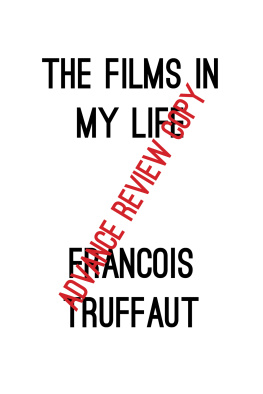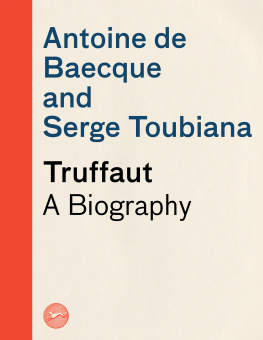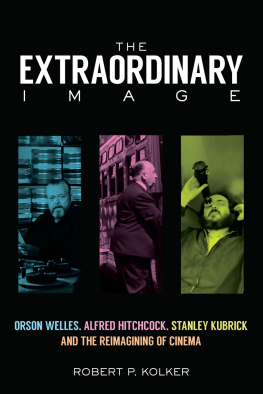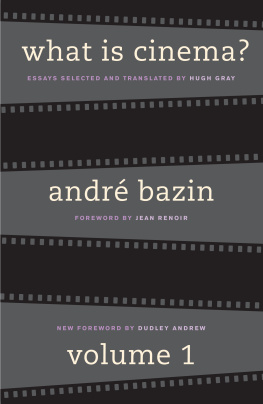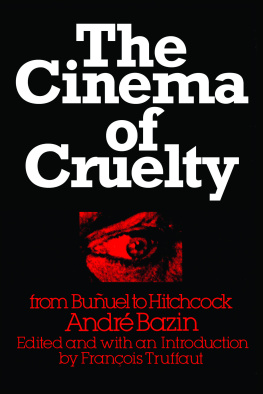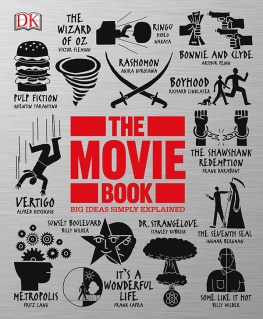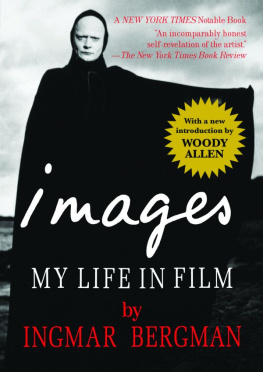Contents
Jean Vigo Is Dead at Twenty-nine
Abel Gance:
Napolon
La Tour de Nesle
A Jean Renoir Festival
The Whiteness of Carl Dreyer
Lubitsch Was a Prince
Charlie Chaplin:
The Great Dictator
A King in New York
Who Is Charlie Chaplin?
God Bless John Ford
Fritz Lang in America
Frank Capra, the Healer
Howard Hawks:
Scarface
Gentlemen Prefer Blondes
Land of the Pharaohs
Joseph Von Sternberg: Jet Pilot
Alfred Hitchcock:
Rear Window
To Catch a Thief
The Wrong Man
The Birds
Frenzy
Robert Aldrich:
Kiss Me Deadly
Vera Cruz
The Big Knife
William Beaudine: The Feathered Serpent
Budd Boetticher: The Killer Is Loose
George Cukor: It Should Happen to You
Samuel Fuller: Verboten
Elia Kazan:
Baby Doll
A Face in the Crowd
Stanley Kubrick: Paths of Glory
Charles Laughton: The Night of the Hunter
Mervyn LeRoy: The Bad Seed
Anatole Litvak: Anastasia
Joshua Logan: Picnic
Sidney Lumet: Twelve Angry Men
Joseph Mankiewicz: The Barefoot Contessa
Anthony Mann: Men in War
Robert Mulligan: Fear Strikes Out
Otto Preminger: Bonjour Tristesse
Nicholas Ray:
Johnny Guitar
Bigger Than Life
Douglas Sirk: Written on the Wind
Frank Tashlin:
The Girl Cant Help It
Hollywood or Bust
Edgar Ulmer: The Naked Dawn
Charles Vidor: Love Me or Leave Me
Billy Wilder:
The Seven Year Itch
Stalag 17
Robert Wise:
So Big
Destination Gobi
Claude Autant-Lara:
La Traverse de Paris
En Cas de Malheur
Jacques Becker:
Casque dOr
Touchez Pas au Grisbi
Arsne Lupin
Le Trou
Jacques Becker, a Year After His Death
Robert Bresson:
Les Dames du Bois de Boulogne
Un Condamn Mort Sest chapp
Ren Clment: Monsieur Ripois
Henri-Georges Clouzot: Le Mystere Picasso
Jean Cocteau: Le Testament dOrphe
Jules Dassin:
Le Rififi Chez les Hommes
Celui Qui Doit Mourir
Sacha Guitry:
Assassins et Voleurs
Sacha Guitry the Villain
Albert Lamorisse: Le Ballon Rouge
Jean-Pierre Melville: Les Enfants Terribles
Max Ophuls:
Lola Monts
Max Ophuls Is Dead
Jacques Tati: Mon Oncle
Kenji Mizoguchi: The Street of Shame
Kon Ichikawa: The Burmese Harp
Yasushi Nakahira: Juvenile Passion
Keisuke Kinoshita: The Legend of Nayarama
Ingmar Bergman:
Bergmans Opus
Cries and Whispers
Buuel the Builder
Norman MacLaren: Blinkety Blank
Federico Fellini:
The Nights of Cabiria
8
Roberto Rossellini Prefers Real Life
Orson Welles:
Citizen Kane , the Fragile Giant
Confidential Report
Touch of Evil
A Portrait of Humphrey Bogart
James Dean Is Dead
Alain Resnais: Nuit et Brouillard
Alexandre Astruc. Les Mauvaises Rencontres
Agns Varda: La Pointe Courte
Roger Vadim: Et Dieu Crea la Femme
Claude Chabrol: Le Beau Serge
Louis Malle:
Les Amants
Le Feu Follet
Jean-Luc Godard:
Tous les Garons Sappellent Patrick
Vivre Sa Vie
Jacques Rivette: Paris Nous Appartient
Jacques Rozier: Adieu Philippine
Pierre Kast: Vacances Portugaises
Alain Resnais: Muriel
Jean-Pierre Mocky: Les Vierges
Claude Berri:
Le Vieil Homme et lEnfant
Le Cinma de Papa
Grard Blain: Les Amis
Laszlo Szabo: Les Gants Blancs du Diable
Claude Sautet: Vincent, Franois, Paul et les Autres
Jacques Doillon: Les Doigts dans la Tte
Franois Truffaut (1932-1984)
Franois Truffaut was born in Paris on February 6, 1932. He left school at fourteen to work as a welder and at a variety of other jobs. From his youth, movies were his great interest. Truffaut began a career as a journalist which was interrupted by military service in 1951. In 1953 he returned to civilian life, and with the help of his friend and adviser, the film critic Andr Bazin, began to publish his sharply critical movie reviews in Cahiers du Cinma and Arts.
In 1955 Truffaut made his first short film. His first feature-length film was The 400 Blows, a partly autobiographical work about a young boy. It was awarded the 1959 Cannes Film Festival Grand Prize for Direction, the New York Film Critics Award for the years best foreign film, and a host of additional prizes. Other highly acclaimed films followed, at the rate of almost one a year. They dealt with the stronger emotions, and chiefly love, presented in a variety of modes: farcical, lyrical, passionate.
In addition to writing screenplays and directing, Truffaut often acted in films. He continued to write criticism and was the author of Hitchcock and The Films in My Life, a collection of critical pieces.
Truffaut was a leader of the group of French film makers known as the New Wave, and was one of the most important directors in the history of the cinema. He was, as Vincent Canby wrote in The New York Times, a quiet revolutionary who worked in conventional modes to make most unconventional films. He died near Paris on October 21, 1984.
I believe a work is good to the degree that it expresses the man who created it.
O RSON W ELLES
These books were alive and they spoke to me.
H ENRY M ILLER ,
The Books in My Life
What Do Critics Dream About?
One day in 1942, I was so anxious to see Marcel Carns Les Visiteurs du Soir, which at last had arrived at my neighborhood theater, the Pigalle, that I decided to skip school. I liked it a lot. But that same evening, my aunt, who was studying violin at the Conservatory, came by to take me to a movie; she had picked Les Visiteurs du Soir. Since I didnt dare admit that I had already seen it, I had to go and pretend that I was seeing it for the first time. That was the first time I realized how fascinating it can be to probe deeper and deeper into a work one admires, that the exercise can go so far as to create the illusion of reliving the creation.
A year later, Clouzots Le Corbeau turned up; it fascinated me even more. I must have seen it five or six times between the time of its release (May 1943) and the Liberation, when it was prohibited. Later, when it was once again allowed to be shown, I used to go to see it several times a year. Eventually I knew the dialogue by heart. The talk was very adult compared to the films I had seen, with about a hundred words whose meaning I only gradually figured out. Since the plot of

